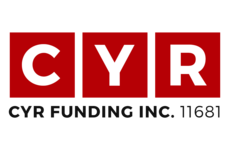What You Should Know About Financing Land
Generally financial institutions do not lend on land, unless it is for a very high net worth, experienced and proven builder or developer, but even that is difficult.
Most land is financed either by way of the seller holding what is known as a Vendor Take Back mortgage or with private lenders, usually through a mortgage broker. Since most land is not income producing an interest reserve to cover 1 year’s payments may be held back.
There are many types of land situations from agricultural farm land, residential building lot for a custom home, multi-unit land such as for a subdivision townhouse project or condominium apartment building, as well as land for commercial projects including plazas, industrial buildings, office buildings, seniors residence, or any other type of building. Some land may not have zoning approved for the use the borrower desires. You must determine with the land planner the status of any application for rezoning, the timing and process as well as the likelihood of approval.
Depending on the zoning, use, location (city, rural) and the strength of the borrower the loan ratio can range from 50% to 75% of value. Most often it is 65%, so the down payment should be 35%.
The land could be “raw” land which means there are no services on the site, such as gas, hydro, water lines, roads, curbs, lights etc. or the land could be “serviced” land which means the above services have been installed.
When appraising the land you can ask for:
1. “As Is” value
2. Value after zoning approval, site plan approval, etc.
3. Value after servicing
The appraisal must be done by an AACI appraiser. The only exception being a single residential building lot which can be done by a C.R.A.
Interest rates on land can range from 6.5% to 10%. As of today’s writing February 1, 2017, the broker and lender fees combined can range about 2% to 4% of the loan amount, depending on difficulty due to location and covenant.
In addition to the appraisal you will require an environmental report. The consultant who does a Phase 1 report, which costs about $2,500 may recommend a Phase 2 report if there appears to be any concern, like above ground or underground oil tanks, previous use of a gas station or dry cleaning facility, etc. The Phase 2 report can cost $7,500 to $10,000 and usually takes 3 to 4 weeks to complete the boreholes and get the laboratory results of the soil and water samples.
If the Phase 2 report states no further investigation is required, you are good to go. However, if there is contamination you will need an estimate for the cost of remediation and the lender may elect to hold back the remediation cost, to be released once the remediation is completed.
In most cases you will also require a Geotechnical report which identifies the soil conditions such as clay, silt, etc. in order to determine favourable areas and non-favourable areas to develop.
I once had a client building 10 townhouses in Coburg in 2 sets of 5. He tried to save money by not getting a Geotechnical report, the first 5 townhouses were fine but the second group of 5 townhouses began to sink due to unfavourable soil conditions and it cost him about $200,000 to solve the problem. This could have been avoided and proper support used in the first place at a much lesser cost.
There are many other considerations, such as environmentally protected land, restrictive covenants, easements, etc.
For further information on how to finance land, please feel free to contact me:
Rena Malkah, C.P.M.B.
Agent #M08010417
CYR FUNDING INC.
Mortgage Broker – License # 11681
Tel: 905.731.1111 x 229
Fax: 905.731.6860
Cell: 647.838.5061
300 John St. Suite 328Thornhill, ON. L3T 5W4
rena@cyrfunding.com
www.cyrfunding.com

